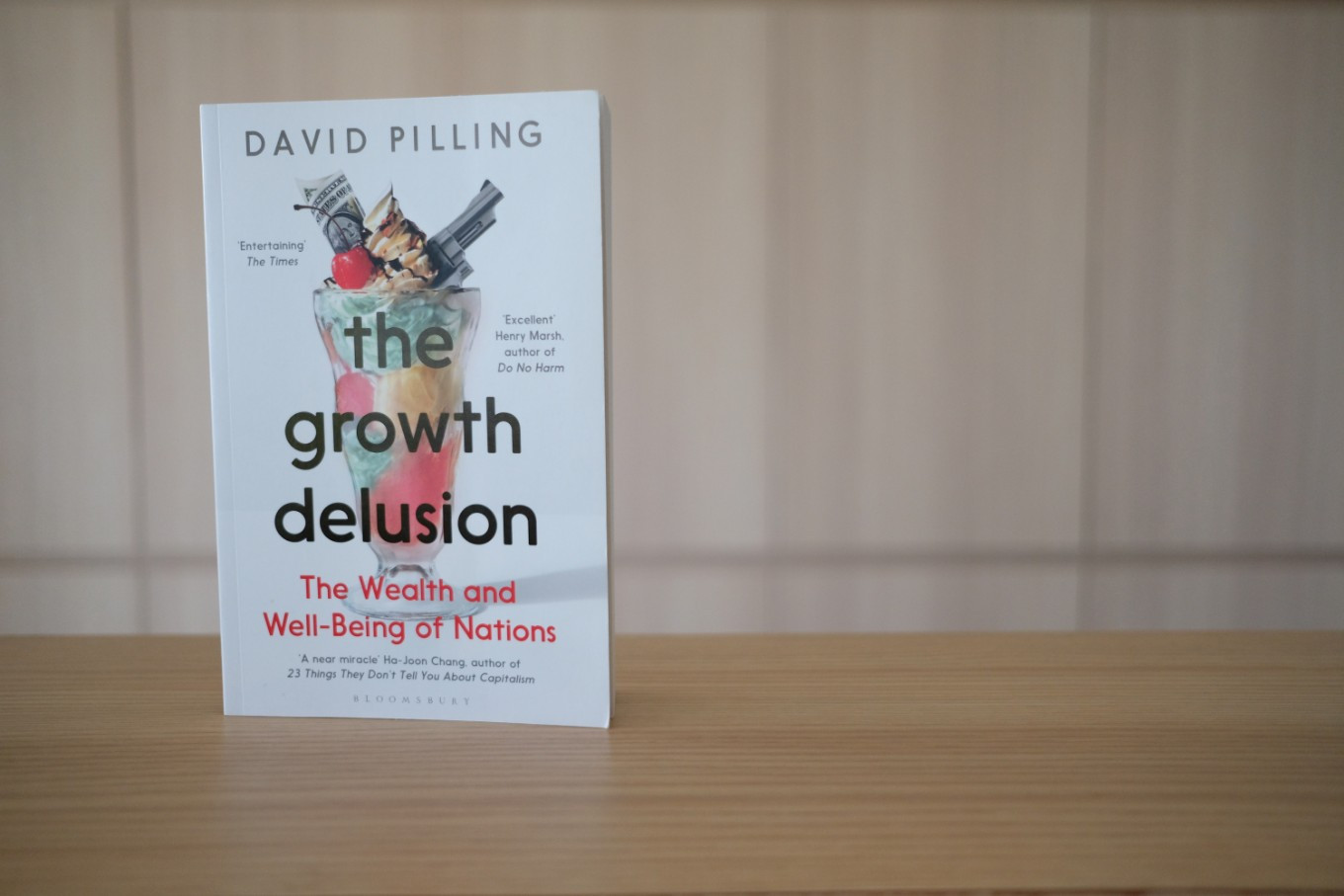Popular Reads
Top Results
Can't find what you're looking for?
View all search resultsPopular Reads
Top Results
Can't find what you're looking for?
View all search results'The Growth Delusion' unveils what we talk about when we talk about the economy
The Growth Delusion, first published in 2018 by Bloomsbury, starts by debunking the notion that when the economy is growing, everything must be fine.
Change text size
Gift Premium Articles
to Anyone
T
oo often, discussions on the economy revolve around growth as measured by gross domestic product (GDP). As a reporter for the Financial Times with more than 25 years of experience, David Pilling has one or two things and more than 300 pages to say about the economy, growth and GDP.
The Growth Delusion, published in 2018 by Bloomsbury, starts by debunking the notion that when the economy is growing, everything must be fine. According to Pilling, the argument that growth is a sign of success and that a bigger economy means better welfare simply does not translate into the reality experienced by many people across the globe. Since the 2008 global financial crisis, the economy has continued growing despite the slowdown, and while some countries' economies have reached a historic size, there is unrest that is driven by dissatisfaction and inequality.
This, Pilling argues, is a sign that we have been focusing on the wrong measurement and signs when we talk about the economy. The concept of GDP was first introduced in the 1930s by Simon Kuznets, a Belarusian immigrant in the United States. Against the backdrop of the Great Depression, Kuznets came up with the idea of measuring the size of the US economy by surveying activity in various national industrial sectors. In 1934, Kuznets presented his report to Congress, titled National Economy 1929-32, and two years later, the term gross national product (GNP) was first used in a conference he helped organize.
GDP, to borrow Pilling's term, is Kuznets' monster. As is the case with Dr. Frankenstein, Kuznets came to lose control over his own creation. Kuznets initially thought that GDP should only measure activities that were beneficial to our well-being. Spending on advertising and prostitution, according to his belief, should not be counted as they are detrimental to social welfare. The way we measure the economy today ignores Kuznets' warning, thus Pilling's first case: that the growth of our economy does not necessarily mean we have better things.
Read also: Patrick deWitt on 'French Exit' and the attraction of the rich
A huge chunk of the book is dedicated to Pilling's attempt to debunk GDP as it is considered too simplistic and flawed. What GDP counts and does not count are problematic since it implies that as a measurement and one thing people rely on to get the big picture of a country's economy, GDP can be rather misleading.
Among other things, Pilling points out that GDP fails to show the cost of all economic activities and its growth. Currently, the environment and its resources are taken for granted, and so is the detrimental impact of economic activities on the environment. There is also the case of economic growth and well-being, which do not always go hand in hand. Citing the Genuine Progress Index (GPI) in Maryland for instance, Pilling argues that it is time policymakers go beyond GDP when it comes to improving social welfare and happiness. (And yes, he has heard of Bhutan's Gross National Happiness index and elaborates why Bhutan is not a suitable role model.)
A book on the economy, which focuses on GDP in particular, might seem dull at first. But readers can be thankful for the fact that Pilling is a hilarious writer. Not only does he make jokes, Pilling chooses cases that are remarkably fascinating to make his argument. The chapters in the book are relatively short, making the book far from convoluted.
All in all, The Growth Delusion is a thought-provoking examination on the economy and our obsession over growth, which as Pilling's suggests, might not be as delightful as we'd like to think. (wng)












